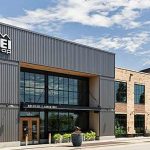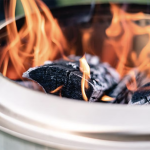Integration appears to be the theme of the day at K2 Inc. as the company moves to create more efficiencies in their broadening portfolio of brands. The company has gotten through the easier stuff, like eliminating the cost of being a public company for some of the businesses they acquired, and are now moving on to the task of developing real synergies between businesses to provide the maximum benefit to the company.
One interesting note comes on the subject of labor costs in China, which are reportedly increasing of late. Company chairmen and CEO Dick Heckman feels they are less susceptible to big changes here because KTO is able to leverage year-round employment against some of the more seasonal positions other manufacturers offer. Other synergistic benefits are expected as KTO gets its apparel initiatives in full swing and starts to see more upside from its ski hardgoods portfolio.
The real trouble spot for KTO in the second quarter was in the Action Sports division, which includes the ski, snowboard, in-line skate, paintball, and bicycle businesses. While the company is touting its dominance in ski, particularly in womens where they lay claim to a share of more than 50% in the U.S., they have also seen a decline in pre-season orders in the ski business.
The company believes that the snowboard business is certainly seeing some impact from the move to twin-tip skis, while the ski business itself is the victim of a move to tighter inventories at retail this year. The company still feels they are less impacted by this move than other ski hardgoods brands and actually picked up share in the futures book. K2 brand futures were up, while the Volkl preseason order book is down.
The company has committed to additional inventory to address the needs of the market. CEO Dick Heckman said that with just a “decent snow year” orders could be higher than they are projecting in guidance. Real leverage in manufacturing in the winter sports business is still seen as a year away from reality.
While the winter sports categories hurt the bottom line due to the timing of development and shipments in the quarter, it was the paintball business that took the biggest hit to the revenue line.
The paintball business is apparently down 25% to 30% at retail in the first half and flat unit sales would seem to apply more pressure on price points. KTO pointed to participation numbers that appear to be holding steady, but no new participants, or a growing base of novices, could keep the pressure on here. Management feels its in the middle of a shakeout in the business and sees itself positioned for the next upswing. Overhead was said to be “slashed” to meet the new realities of the market place. Paintball category sales declined 25%, but the business was described as profitable.
The Action Sports division saw the operating loss for the period expand to $10.7 million from a loss of $1.0 million in the year-ago period.
It was smooth sailing once KTO got past the action sports issues as the Marine & Outdoor, Team Sports, and Apparel/Footwear divisions all posted increased sales and improving profits for the period.
The Marine & Outdoor division, which includes Shakespeare, Stearns, and other smaller brands, saw operating profit grow 22.6% to $20.1 million, compared to $16.4 million in Q2 last year. The Shakespeare growth was again driven by Pflueger reels, kits, and combos, and the new premium line. Heckman said the 2006 product range was made up of 36% new products. The core flotation business was up in double-digits and the hunting business posted a high-single-digit gain.
The Team Sports business is also showing some solid energy, as double-digit sales growth led to a $1.7 million operating profit for the quarter versus a $0.7 million loss in the year-ago period. Heckman said the retail business for Rawlings, Worth, and Miken was up in mid-single-digits for the quarter and the team sports business posted a 16% gain for the period. The Worth acquisition has given K2 Team the ability to stratify bat pricing by brands, offering a good, better, best strategy at retail. Heckman was also upbeat about Rawlings regaining the lead in the mid-price glove business.
KTO tripled its Apparel/Footwear business on the strength of acquisitions and saw operating profit increase nearly 90% to $3.0 million, compared to $1.6 million in the year-ago period. Heckman feels they have a “pretty good” apparel platform in place after the acquisitions of Marmot and Ex Officio, “particularly on the winter side.” In footwear, Heckman said that the Adio brand “continues to be a stud.” Second quarter shipments were said to be up 66% over a strong Q2 last year for the brand. He said they expect to add another $10 million in worldwide business this year as the brand starts to leverage K2s global operations, including the infrastructure in Europe that did not exist prior to last years Volkl/Marker acquisitions.
Total organic sales for K2, Inc., which excludes about $32.6 million in sales from acquired businesses, were up 7.1% for the second quarter. KTO organic sales growth would have been more than 10% excluding the paintball effect. The fall in net income was attributed to the acquisitions of Volkl, Marker, and Marmot, brands that have higher levels of fixed expenses in Q2 while gearing up for shipments in the third quarter. Those expenses more than offset the 230 basis point improvement in gross margin that was attributed to “higher gross margins in the Team Sports and Apparel and Footwear segments.”
| K2, Inc. | |||
| Fiscal Second Quarter Results | |||
| (in $ millions) | 2005 | 2004 | Change |
| Total Sales | $301.4 | $251.0 | +20.1% |
| Marine & Outdoor | $130.4 | $107.8 | +21.0% |
| Team Sports | $68.3 | $61.8 | +10.5% |
| Action Sports | $65.1 | $69.2 | -5.9% |
| Apparel/Footwear | $37.6 | $12.2 | +208% |
| Gr. Margin | 33.1% | 30.8% | +230 bps |
| Net Income | $1.5 | $6.2 | -76.5% |
| Diluted EPS | 3¢ | 16¢ | -81.3% |
| Accts Rcvbl @ Qtr-End | $264.8 | $217.7 | +21.6% |
| Inventories @ Qtr-End | $367.1 | $212.5 | +72.9% |












